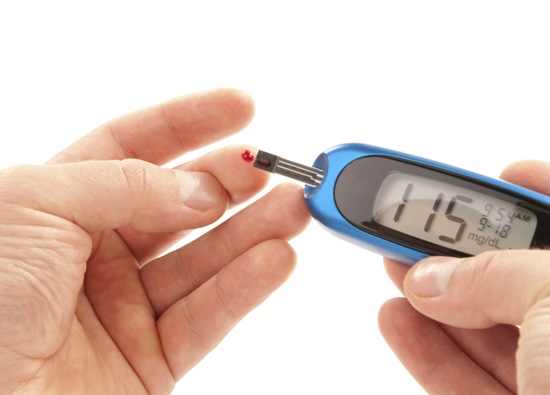The prescribed treatment for diabetes depends upon the type of Diabetes a person has. Type 1 diabetes (also known as juvenile diabetes) is caused by inadequate insulin produced by the body. Type 2 diabetes is often called a lifestyle disease and is an adult onset disease of high blood sugar caused by insulin resistance where the body is unable to utilize insulin properly.
Type 2 diabetes is caused by a combination of lifestyle factors and genetics and as such the treatment for diabetes encompasses both lifestyle modifications as well as medications.

Delay and prevention of type 2 diabetes
Taking regular exercise, eating a healthy and balanced diet (less sugar and more leafy green vegetables) and keeping weight within normal ranges can help to delay the onset of diabetes and can reduce risk of the disease by as much as 50%.
Regular exercise in particular is seen to be of great benefit.
Research shows that both anaerobic as well as resistance exercise is helpful, in particular if taken after a meal rich in carbs, which can increase the levels of blood sugar.
It is recommended that a minimum of two and a half hours of vicious exercise and eating a diet low in fat and high in fiber can help reduce diabetes risk and can be treatment for diabetes as well.
Fatty acids found in dairy products are helpful while trans fats are to be avoided. Vegetarians are seen to be at lower diabetes risk so lowering meat intake may also help lower risk. Women can reduce their diabetes risk further by breastfeeding.
Lifestyle interventions better treatment for diabetes than medications
The aim of diabetes management is to try and normalize the metabolism of carbohydrates as far as possible. Though insulin replacement medications can work to normalize this, insulin resistance can also be corrected by exercise and dietary modifications.
Research has shown that it is possible to fully control type two diabetes by diet modifications. The total amount of sugar consumed through sweet and refined foods, as well as drinks should be curtailed. On the other hand the proportion of complex carbs from whole fruits, vegetables and whole grains should be increased.
Medications for diabetes
Uncontrolled diabetes can lead to complications such as hyperglycemia or hypoglycemia, as well as kidney problem, problems with eyesight, heart disease and even limp amputation. Those type 2 diabetics that do not respond to lifestyle modifications have to take medications as treatment for diabetes in the form of insulin therapy.
Along with insulin other medications or a combination of medications can help control and manage diabetes. Depending upon the severity of a person’s disease and their individual medical profile, medications may be prescribed singly or in combination.
Sulfonylureas and/or Meglitinides may be prescribed for increasing insulin production by the pancreas, Biguanides could inhibit the amount of glucose produced by the liver, Alpha-glucosidase inhibitors could help slow absorption of carbs eaten, Thiazolidinediones could be prescribed to increase insulin sensitivity, D-phenylalanine derivatives can also increase insulin production, Amylin synthetic derivatives and Incretin mimetics may be prescribed as a treatment for diabetes.
Read more at http://www.womenhealthzone.com/general-health/diabetes/treatment-for-diabetes-type-2/



